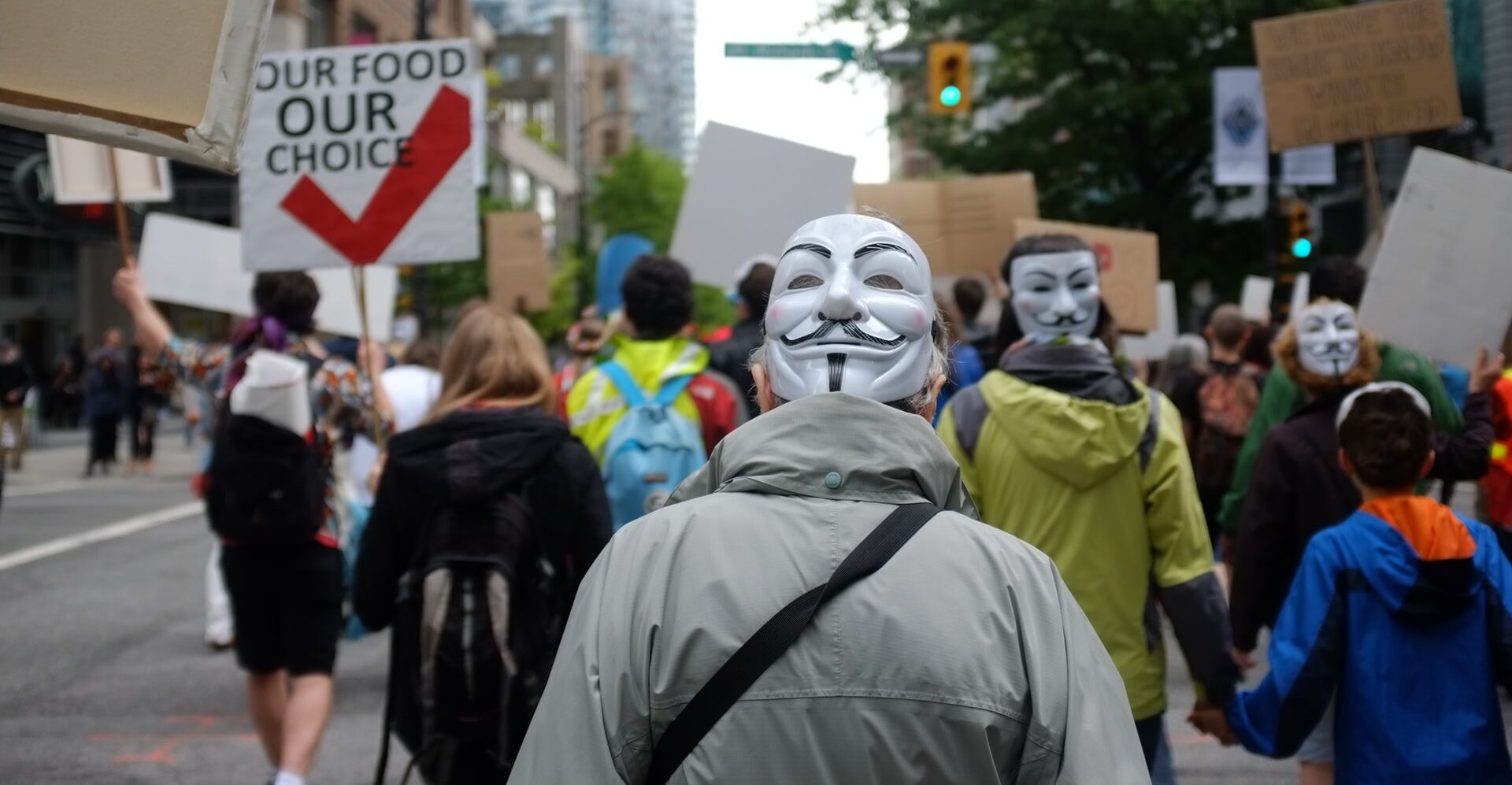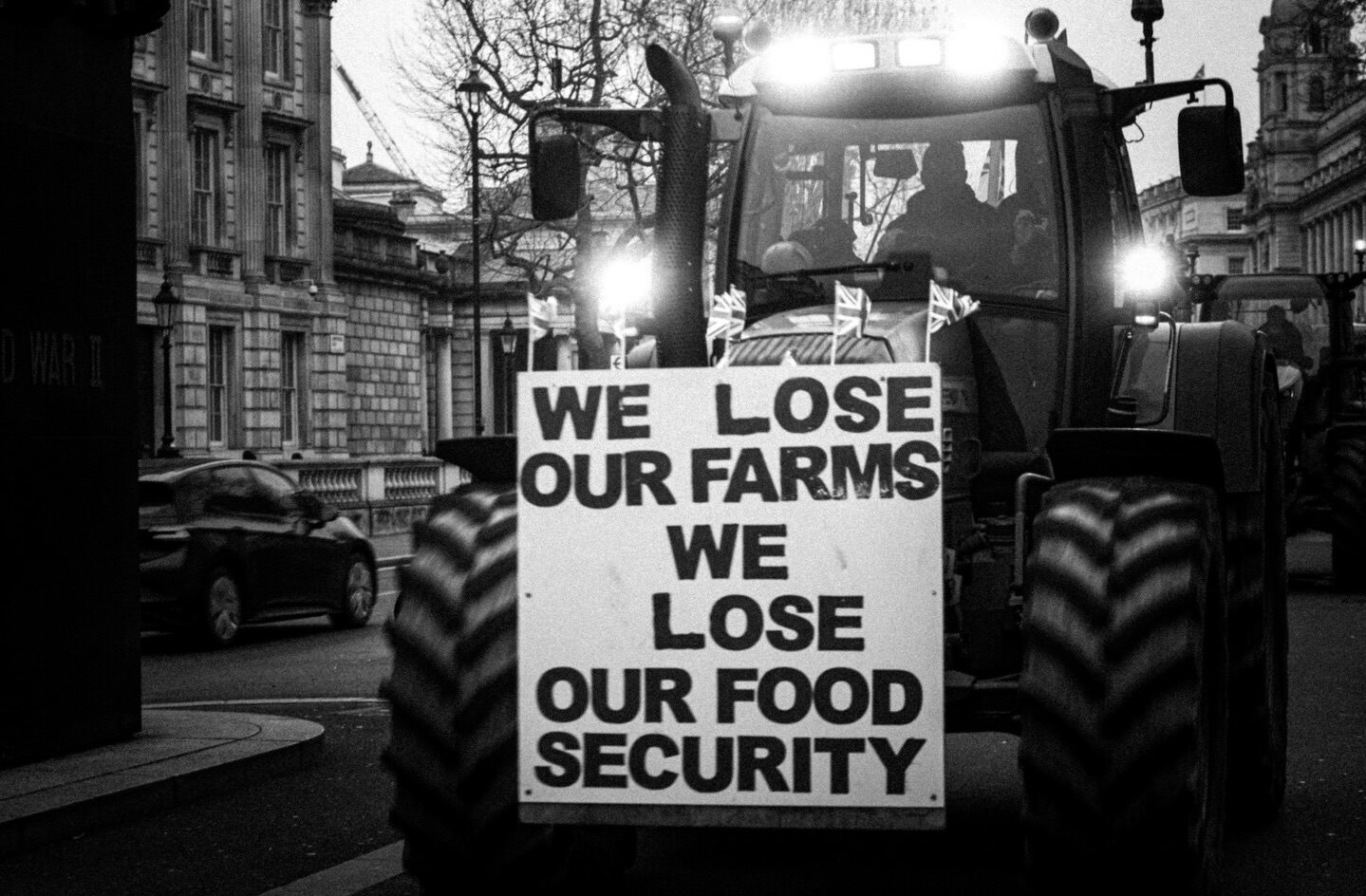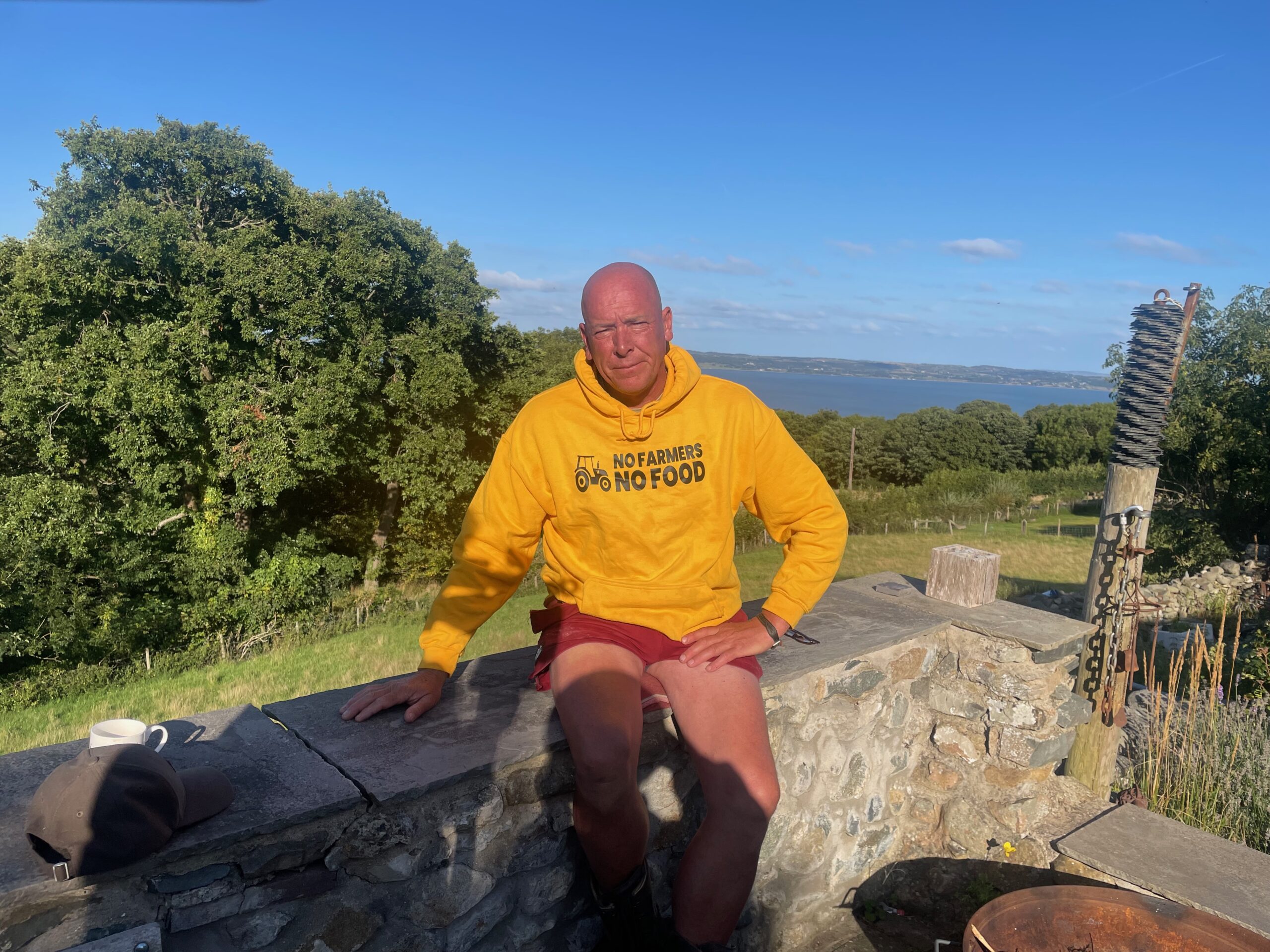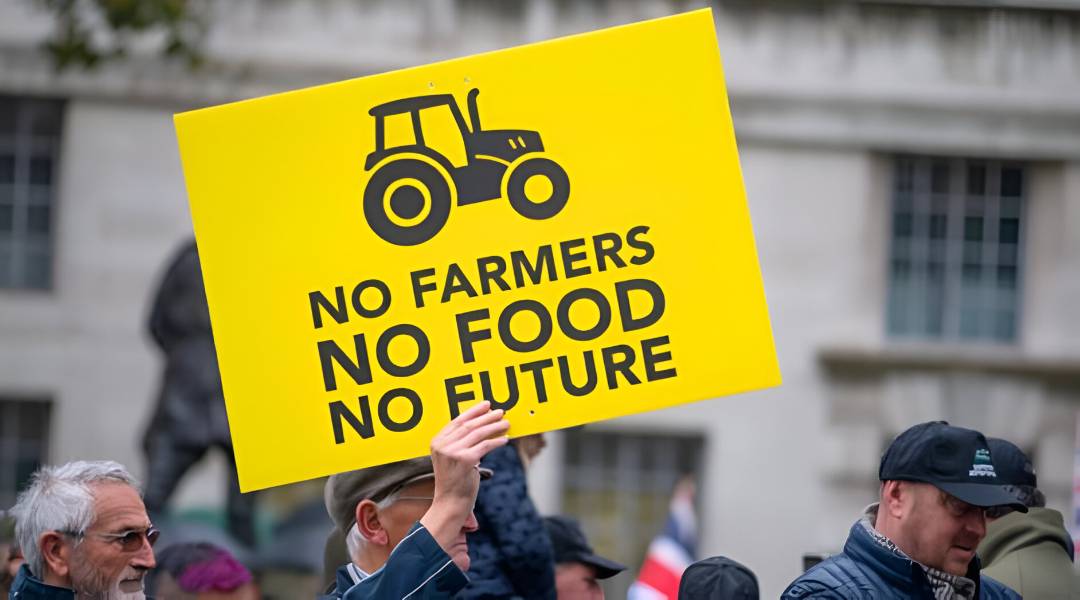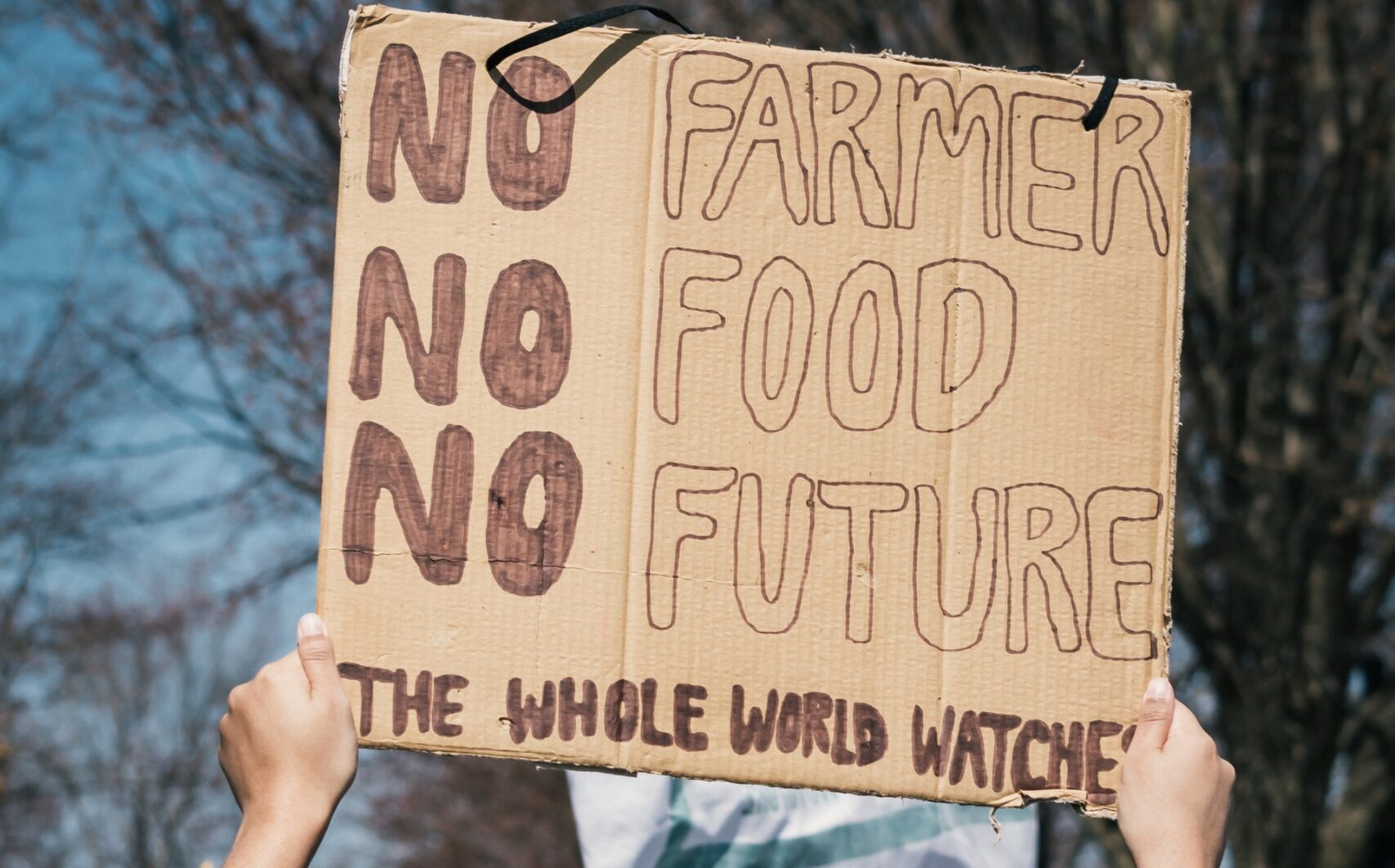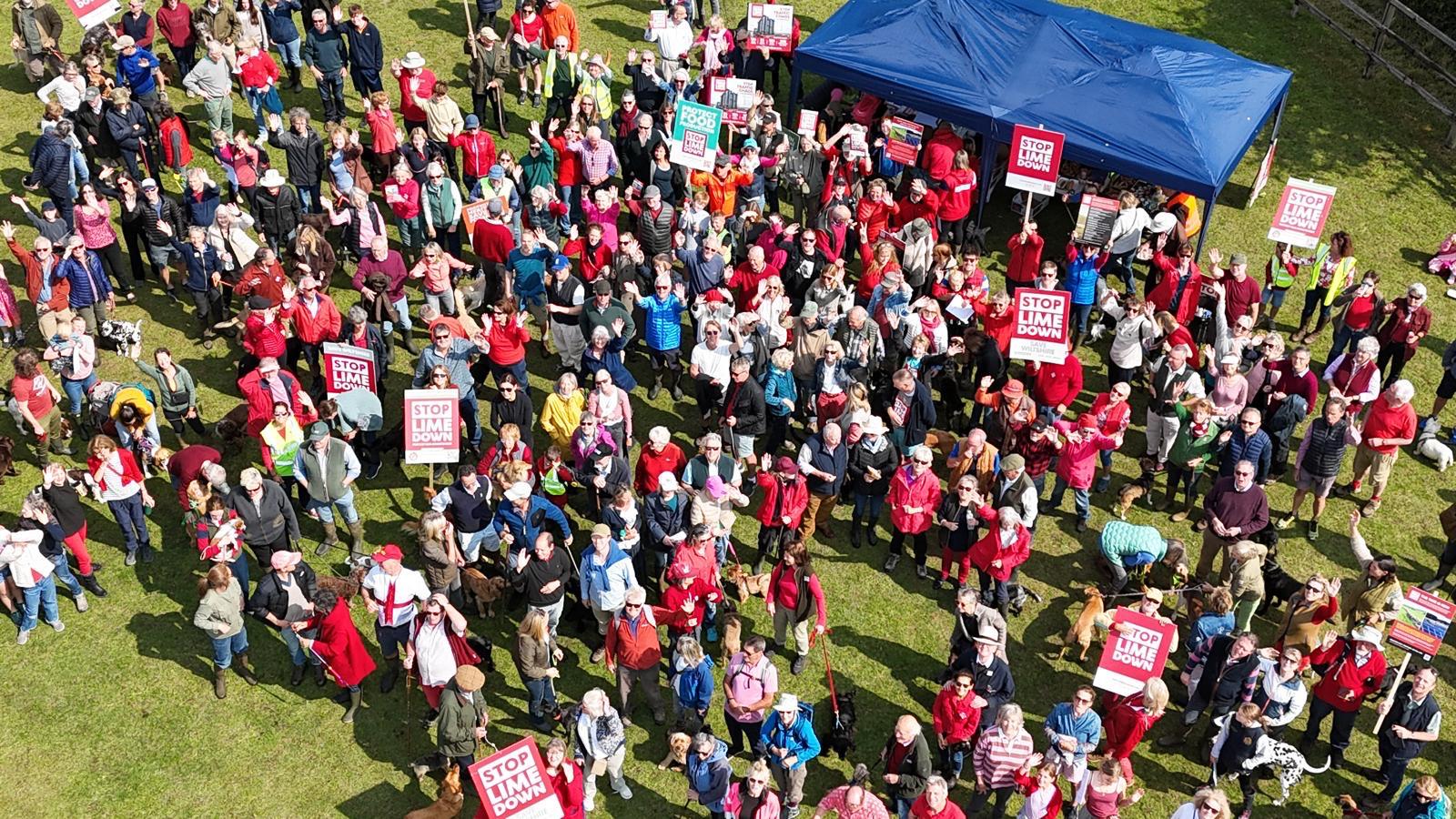Rooting for Real Farms: Hill Land Herds
“There are more giant pandas in the world than British Lop pigs“, says Paul Pinnington who has started his own farm, Hill Land Herds with British Lop gilts. The pigs are kept on an acre and a half of meadow grass with lots of shade, a good wallow, insulated pig arks for warmth in the winter and cool in the summer. Paul makes his own pork and hopes to make enough sales to continue supporting the endangered British Lop pig. Please support them by giving their video a like and a share.
GMOs – The Government Isn’t Listening
Business and political interests are conspiring to push genetic engineering onto our plates whether we want it or not. Many thousands of people responded to the UK public consultation on removing regulations that restrict the planting and marketing of gene-edited organisms.The vast majority of 6,440 submissions to the consultation said NO to the proposals and yet Defra excluded more than half of the responses from its analysis on the basis that these responses came from “campaigns”. (Page 4 of the in depth summary says 6440 responses in total received – a note at the bottom of that page says final analysis is based on the 3083 responses submitted to Citizen Space. Annex p41 lists the campaign responses (and numbers) they removed from the analysis!)
Of course the media is obediently silent.
Citizen action will pressure the government to follow advice from its own consultation and keep to the precautionary principle as recommended in existing EU law, and thereby keep genetically engineered plants and GM seeds from being grown and sold in the UK. So, please take part in the public actions being prepared by invaluable groups like Beyond GM, whose Director, Pat Thomas, told Farms not Factories;
“The clear consensus of 88% of British citizens who responded to the consultation was ‘no to deregulation’. Nevertheless the government has ignored public opinion and announced its plans to deregulate gene editing and, in the longer term plans to deregulate all genetically modified organisms used in agriculture.”
“Before the end of this year, they will remove the requirement for biotech companies to apply and pay for a license to plant gene edited crops in open field trials. This change in regulation will happen via statutory instrument, without Parliamentary debate. We are still awaiting details as to whether they have also dropped from UK law, other sensible precautions including; public notifications, requirements for buffer zones between the trial and other crops, and procedures to stop trial material getting into the food chain and crop residues persisting in the field.
“The government’s next step will be to amend the Environment Act to change the definition of GMOs to exclude organisms created using gene editing. The purpose of this is to reinforce a scientifically indefensible position that gene-edited organisms are the same as naturally occurring, or conventionally-bred, plants. Doing this will remove any requirement for labels on foods produced using gene-edited plants or organisms. This is a clear breach of consumer rights to know what they are eating.”
In future, this “levelling up” has other implications, continues Pat;
“Genetic engineering in agriculture is no longer confined to a handful of crops and will threaten any transition to agroecological farming. The decision to deregulate has opened up space for other future uses which include genetically engineered livestock, genetically engineered microbes (which can be deployed as so-called ‘soil improvers’ or as pesticides), synthetic biology (which can be used to produce a range of genetically engineered foods in the lab taking food production off the land), RNAI sprays (which can be applied in open fields to temporarily alter how genes function (e.g. to force early ripening)) and gene drives which spread permanent genetic changes in plants in the field.
“In spite of its worn-out pronouncements about benefits for farmers, the environment and consumers and feeding a growing population, Defra has suggested that the first UK gene edited crop is likely to be sugarbeet, an environmentally damaging crop that feeds the processed food industry. The National Farmers Union is pro-genetic engineering, because both it and its subsidiary, the British Beet Research Organisation, earns money from every ton of sugar beet produced in the UK in the form of a levy. Since genetically engineered sugar is an ubiquitous ingredient in processed foods, unregulated it can pass into the food system unlabelled and undetected.”
Sign up to Beyond GM’s newsletter in order to stay up to date and take part in forthcoming actions and attend their free webinar, A Bigger Conversation, on October 28: Gene Editing – Blurring the Lines Between Nature and Technology. Register here
Liz O’Neill, Director, GM Freeze, is currently asking us all to write to our MP to start raising awareness of the true consultation results.
Gov rewriting EU laws
We are not only seeing EU laws on GM and gene editing consigned to the dustbin, the Government is demanding powers to rewrite any and all ‘retained EU legislation’ while bypassing Parliament. If they succeed, we can expect a generation of corporate lobbyists rewriting our most important laws.
‘EU law is at the heart of environmental, industrial and employment regulations, as well as in the fields of consumer protection, transport, energy, safety standards for food, goods and products, culture, tourism, education and sport. In other words, we are talking about a significant part of the rules that are affecting our daily lives.’
To give an example of how this would play out, think about the changes proposed to privacy laws;
‘The changes the UK Government are proposing for GDPR (General Data Protection Regulation) are enormous and controversial. They are not tweaks to widget legislation. They look like delivering enormous power to corporations to shape our lives and discriminate against people with impunity, while making it very hard to enforce what rights we are left with.’
Stand by Julian Assange
In the age of the surveillance super-state, we need whistleblowers, journalists and publishers to be free to publish truthful information in the public interest. Unless we put up an almighty fight now, we will continue down the path towards a dystopian world on a par with George Orwell’s 1984. So, please support the Dont Extradite Assange Campaign and attend the October London demonstrations pre and during his court hearing.
‘Assange’s right to publish is our right to know’.
News Round up
UK
? Gene editing is not the answer, rare breeds are says the Rare Breed Survival Trust CEO Christopher Price, and neither is it comparable to traditional livestock breeding:
“It may be true that meddling with animal genetics has the potential to bring about improvements in health and welfare, such as by increasing immunity to diseases or reducing the ability to feel pain. But this misses the point that most of the problems gene editing seeks to address are man made, resulting from intensive farming systems, with animals being kept in artificial systems at high densities.”
“Our native livestock breeds, on the other hand, were bred to thrive in our landscape. If the right breed is kept in the right place, at the right density, its health and welfare needs will be met, with minimal need for intervention. The problems gene editing seeks to address simply do not occur in the way they do with intensive systems.”
? Emergency visas being issued to tackle food supply chain crisis. Duncan Berkshire, a vet who is involved in a steering group of experts working with pig farmers, said
‘this is being done purely because something has gone wrong with the food chain.’
TW comment; Understatement! Corporations and banks controlling our food economy have proved to be an utter disaster. We need to reduce the distance between the producer and consumer and revitalise small and medium scale agro ecological farms, slaughter houses, processors and markets.
? Factory farming, zoonotic disease and the risk of pandemics
“It is well recognised that the intensive farming of livestock poses a major pandemic risk. The report Preventing the Next Pandemic (UN Environment Programme and the International Livestock Research Institute, 2020) identifies unsustainable agricultural intensification and increasing demand for animal protein as major drivers of zoonotic disease emergence. Likewise, the Intergovernmental Platform on Biodiversity and Ecosystem Services states: ‘The underlying causes of pandemics include … land-use change, agricultural expansion and intensification.’ ”
“Less-intensive livestock farming systems, including organic, agroecological, and regenerative approaches, place emphasis not on maximising productivity at any cost, but on providing more natural environments that promote good health, low stress, strong natural immunity and low incidence of disease. The abundance of clear evidence and experience demonstrate that an urgent mainstream shift to these healthier and more sustainable farming systems is essential if we are to minimise further antimicrobial resistance and reduce the risk of further zoonotic disease and the potential for future pandemics.”
? Jeremy Clarkson urges the government to boost UK food self-sufficiency which has watched its self-sufficiency levels drop from as high as 78% in the mid-1980s to its current level of just 60%.
“I think it should be much more like 80%, we’re capable of it, we’ve got the right climate, we have the right soil, we could easily do it,” he said. It should be as much encouragement as possible from the government to the farmers to actually get it back up a bit. If you’re thinking about the country as a whole and looking after the people in it, you have to look after the farmers who provide the food.”
While the TV presenter/farmer in the final episode of his series ‘Clarkson’s Farm’ said:
“Farming seven days a week for a year, on a 1,000-acre farm, has generated an income of £144. What are farmers going to do? The ones who don’t have Amazon film crews following them around and don’t have Who Wants to Be a Millionaire to top up their income?”
TW comment; Sadly Jeremy doesn’t mention the elephant in the room; we are losing our precious farmers due to cheap substandard imports.
♻️ Great to hear in the Rural Policy Group’s survey, that citizens are prepared to invest in high quality food in order to ensure British farmers receive a fairer price. However, while UK standards might be better than some, they can hardly be described as good and the government is presently deregulating by signing free trade treaties to suit transnational companies and their desire for frictionless borders for their substandard food.
“The rural thinktank’s research shows that nearly all (99%) of the consumers said it was important for farmers to receive a fair price for their produce.”
“Recognising that 42% of farms will be loss making by 2024 and that government seems to favour keeping food prices low with trade deals that allow cheaper imports, 93% of consumers are prepared to pay more for their food in order to ensure farmers are fairly rewarded for their produce.”
“The same number of respondents (93%) also think that supermarkets should do more to protect local farming and maintain good food standards. A number of key consumer trends emerged during the pandemic, including the resurgence of localness, concern about personal safety and the increased desire for sustainability.”
Rest of the world
⛽️ Biogas Subsidies Benefiting the Largest Industrial Animal Farms?
“Critics are raising concerns that carbon markets and tax breaks are encouraging companies to make large CAFOs even larger.”
?Lab grown meat isn’t about sustainability, it’s big business, and contrary to it’s widely touted inevitability, the science tells a different story ?
“Ultimately, lab grown meat — alongside the fish, milk, and eggs currently being prototyped — is not about sustainability, it’s not about saving the planet, it’s not really even about food. It’s about IP. The prize of vat-grown protein has the potential to create something even more financially significant than Coke or McDonald’s and every one of us, every vegan, every steak lover, health freak and foodie alike, should understand that.”
? The same major players behind factory farms, giant meat and dairy companies are dominating the plant based protein market
“As consumers are given the appearance of more choices, actual ownership of these brands is held by a decreasing number of firms behind the scenes,” including Cargill, Tyson, and Nestlé.”
?? Indian pastoralists support regenerative grazing by livestock and domestic animal diversity. Instead of supporting them, the government and large companies are hellbent on destroying this sustainable system of livestock rearing.
? Amazon, “Economic Terrorism” and the Destruction of Competition and Livelihoods
“Global corporations are colonising India’s retail space through e-commerce and destroying small-scale physical retail and millions of livelihoods.”
?? WalmartLand: How US Stores in Mexico are Displacing Local way of life
“More and more US transnationals have opened up in Mexico over the past few decades, taking advantage of unfair trade agreements, super-exploitative labor conditions, and cheap utilities. Local restaurants and traditional Mexican tianguis markets struggle to compete, and many Mexicans see the US companies as a source of social status.”
? ‘The whole system is rotten’: life inside Europe’s meat industry
“The relationship between a meat company and worker is not that of employer and employee; rather, the intermediary either acts as the employer, or the worker is designated – often incorrectly – as self-employed. This system can hollow out companies’ responsibility for their workers, and allow them to avoid legal liability for issues such as pay, working times, accidents and injuries, in a sector recognised as dangerous and physically challenging.”
?? Spain’s pig farms blamed for mass fish die-offs
“Pork industry’s role in pollution of one of Europe’s largest saltwater lagoons may be greater than publicly acknowledged, investigation reveals”
? Africa’s green revolution initiative has failed
“We found little evidence of significant productivity improvements. For a basket of staple crops, productivity increased just 18% over 12 years, practically the same rate as it had prior to the interventions by the Alliance for a Green Revolution in Africa. That is nowhere near its goal of doubling productivity, a 100% increase.”
? Amazon deforestation is delaying and reducing vital rainfall in damaging ‘feedback loop’ threatening Brazil’s crop yields, its hydro-electric power and river transport systems – as the forests evapotranspiration river in the sky, dries up.
“Planet Tracker said it was calling on investors in Brazil’s sovereign bonds to put pressure on the Brazilian government to stop illegal deforestation by reversing cuts to the Ministry of Environment and other enforcement agencies, and by demanding more government investment to prevent illegal deforestation”
?? Research from low-income countries shows a link between poor access to reproductive health services and environmental damage.
‘A UN Environment Programme earlier this year reported that investment in “community-based family planning” would help in tackling the climate, biodiversity and pollution crises and is crucial if women are to take up leadership roles as communities adapt.’
Please donate
Forgive me for pointing out that, while we receive some one-off donations, I am funding Farms Not Factories myself, and if we are to continue to fight the cruel, antibiotic-led factory farm system, we will need some regular donations from like-minded people. Please consider a monthly subscription of £2/month and help us support a network of smaller scale, humane and healthy UK pig farms, local abattoirs and butchers.
“Our message is simple, we want to help bring an end to this dangerous, inhumane system. Vote for real farming over factory farming.”
– Tracy Worcester, Director
Contents
Share This Article
Related ArticlesView All
Protect UK Farmers from Low Standard Imports
The purpose of our newsletter is to give you important information that is censored in the mainstream media. “The way… Read More
Protectionism vs So-Called Free Trade
The purpose of our newsletter is to give you important information that is censored in the mainstream media. “The way… Read More
Find A Farmer
The purpose of our newsletter is to give you important information that is censored in the mainstream media. “The way… Read More
Zionist Money Rules
The purpose of our newsletter is to give you important information that is censored in the mainstream media. “The way… Read More
The Price of Progress
The purpose of my newsletter is to give you important information that is censored in the mainstream media. “The way… Read More
Silencing Dissent Through Fear
The purpose of my newsletter is to give you important information that is censored in the mainstream media. If you… Read More
